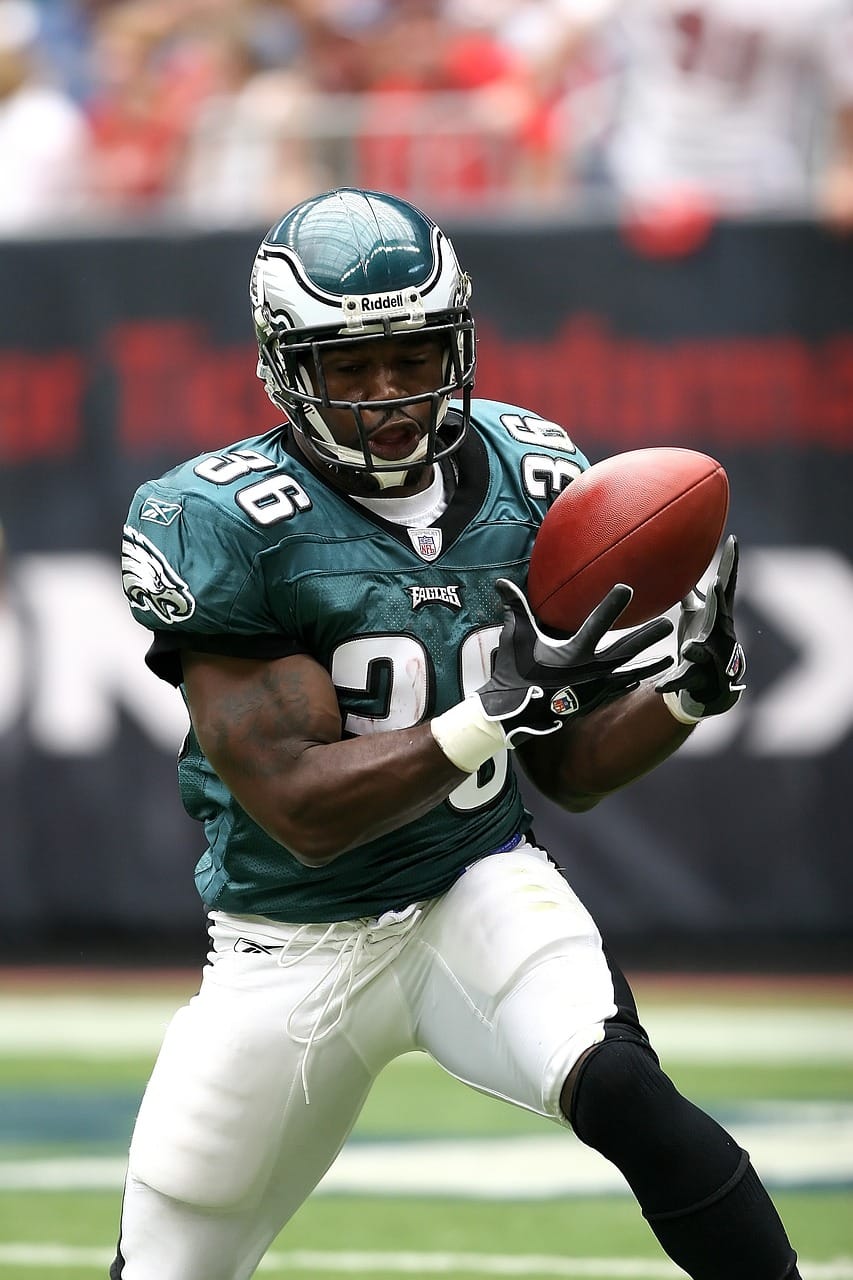Add another econ major to the ranks of NFL coaches along with Bill Belichick. Jim Schwartz, the new head coach in Detroit and former defensive coordinator in Tennessee, holds a degree from Georgetown. Judy Batista wrote a NY Times article on him last year. Here is Schwartz on his penchant for utilizing statistical analysis:
The world of football is increasingly embracing data and analytics as crucial tools for decision-making, and the rise of NFL coaches with economic backgrounds is a testament to this trend. Bill Belichick, widely regarded as one of the best coaches in NFL history, has long been known for his analytical mind and strategic use of data. Now, another economics major has joined the ranks of NFL head coaches: Jim Schwartz, the former defensive coordinator for the Tennessee Titans and current head coach of the Detroit Lions.
Schwartz holds an economics degree from Georgetown University, a background that shapes his approach to football. In a New York Times article by Judy Batista, Schwartz discussed his passion for utilizing statistical analysis in his coaching strategy. This raises an interesting question about the broader role of economics and statistical theory in sports, and particularly how economics training equips individuals with valuable skills for managing complex, multivariable problems, whether in football or other areas of life.
As more and more disciplines turn to statistical analysis to solve problems, it’s worth examining how economics training uniquely prepares individuals to approach complex decision-making scenarios. In this article, we’ll explore how Schwartz’s background in economics has influenced his coaching style, the role of theory and statistical analysis in economics, and how these skills translate to other fields, including professional sports.
[ez-toc]
Jim Schwartz: From Economics Major to NFL Head Coach
Jim Schwartz’s path to NFL coaching success is far from typical. After earning a degree in economics from Georgetown, Schwartz didn’t immediately jump into coaching. Instead, he began his career as a scout for the Cleveland Browns under Bill Belichick in the early 1990s. This experience exposed him to the behind-the-scenes data-driven aspects of football management, and it’s here that his analytical background began to shape his approach to the game.
Schwartz’s interest in statistical analysis has become a defining feature of his coaching style. In the New York Times article by Judy Batista, Schwartz explained his penchant for using data to inform decisions on everything from defensive strategies to player evaluations. His economics training equipped him to think about problems in terms of multiple variables—how various factors interact to produce a particular outcome—and this analytical mindset has made him one of the more innovative minds in NFL coaching.
For example, in his role as the Tennessee Titans defensive coordinator, Schwartz became known for constructing defenses that adapted to the specific strengths and weaknesses of opponents. He utilized data to pinpoint inefficiencies in the opposing team’s offense and build defensive schemes that could exploit them. This method wasn’t about gut instincts or tradition—it was about using the best available data to make informed decisions.
When Schwartz was hired as the head coach of the Detroit Lions in 2009, he brought this analytical approach with him, emphasizing the use of statistics and data to turn around a struggling franchise. While his tenure in Detroit was marked by mixed results, his reliance on data and statistical analysis underscored a broader trend in the NFL—one in which analytics is becoming increasingly important in decision-making at all levels of the sport.
The Role of Theory in Economics and Its Application to Football
Schwartz’s reliance on data leads to a broader discussion of the value of theory in economics training. At its core, economics is a social science that seeks to understand how individuals and institutions make decisions in a world of scarce resources. While much of the public’s understanding of economics might be based on concepts like the law of supply and demand or inflation, for economists, the discipline is much more than theoretical concepts. Economics is rooted in empirical research—using data to test theories, analyze patterns, and predict outcomes.
In Schwartz’s case, his economics degree helped him develop a strong foundation in the use of multivariable modeling, which is critical in both economics and football. Multivariable models are designed to account for the many factors that influence outcomes—whether it’s understanding how consumer behavior changes with pricing shifts or predicting how a defensive play will fare against different offensive formations.
What’s often undersold in economics is how much statistical analysis plays a role in the training of economists. While the theories we learn—ranging from market efficiency to agency problems—are important, it is the statistical tools that often have the most direct application to fields outside of economics. Economists develop a deep understanding of how to structure data, how to build models that can test hypotheses, and how to separate meaningful variables from noise. This skill set is especially useful when dealing with complex, multivariable environments, such as football.
In football, the challenges are similar to what economists face in other fields. Coaches must analyze data from countless sources—game film, player performance metrics, and even environmental conditions—to make decisions. Schwartz’s ability to apply economic thinking and statistical models allows him to triage different influences on the game, much like how an economist might consider multiple variables when analyzing a market.
Economics and Identifying Variables in Complex Problems
One of the major strengths of an economics education is the ability to approach complex problems with a clear, structured methodology. One of the core tasks in economics is determining which variables are most important in explaining outcomes and finding creative ways to identify causal relationships between them. This process is called identification, and it is crucial when dealing with multifactorial problems.
In sports, especially football, games are not determined by a single variable. Countless factors, such as team formations, player fatigue, weather conditions, and even crowd noise, can impact the outcome. For coaches like Jim Schwartz, the challenge is not only to manage these variables but to prioritize them, deciding which ones to focus on in preparing a game plan.
Schwartz’s economics background gives him an advantage in this respect. The training economists receive in identifying relevant variables and understanding the relationships between them makes it easier to break down complex problems and devise solutions. In football, this might mean using data to evaluate which opposing players or strategies are most likely to affect the game’s outcome and devising a plan to counteract them.
The Broader Application of Statistical Skills in Economics
Schwartz’s use of statistical analysis in football mirrors how economists use data in other fields. One noteworthy example is the application of economic models to health issues, such as autism research. In a 2007 Wall Street Journal article, economists were highlighted for their contributions to understanding autism, a condition that, like football, involves complex, multifactorial systems.
What’s remarkable is that economists, who traditionally focus on markets and financial systems, have applied their data modeling skills to entirely different fields. Autism, a neurological disorder, requires analysis of genetic, environmental, and developmental factors, much like how economists analyze the interplay of supply and demand in markets. Similarly, Schwartz’s application of economic theory and statistical analysis to football is another example of how the skills learned in economics extend far beyond their traditional applications.
Economics, more than many other fields, emphasizes the importance of causal identification—distinguishing between correlation and causation. This ability to tease apart the relationships between variables is crucial in many disciplines, including medicine, public policy, and sports. While other fields use statistics, few develop the same rigor in dealing with complex, multivariable problems as economics does.
The NFL’s Shift Towards Analytics
Schwartz isn’t the only NFL coach embracing data and analytics. Bill Belichick, another coach with an economics background, has been a long-time proponent of using data to inform decision-making, particularly in-game scenarios like whether to go for it on fourth down. Other teams, such as the Baltimore Ravens and San Francisco 49ers, have also embraced analytics departments, employing data scientists to develop game strategies and player evaluations.
As the use of data becomes more mainstream, the role of economics and statistical analysis in football will likely grow. Coaches like Schwartz represent a new wave of thinking in the NFL—one where gut instinct and tradition are increasingly complemented by data-driven insights.
Conclusion: Economics and Football—A Winning Combination?
The article spends most of its time focusing on Schwartz’s interest in statistical analysis, which brings me to my broader question. What is the value of “theory” in econ training? We may oversell the theory for its own sake and undersell its indirect contributions to our statistical abilities. Yes, concepts ranging from the law of demand to agency problems provide insights into decisions. Yet, for most economists, including those who write on this blog, the lion’s share of our research efforts are devoted to statistical analysis.
Indirectly, theory develops our sense and skill with “multivariable” modeling problems, particularly fostering the ability to consider and triage a variety of influences. Along with this, it develops skills and creativity at coming up with “identifying” variables and techniques (ways of distinguishing the effect of one variable from another). These stat skills provides economists with the ability to provide empirical contributions (arguably) to something as seemingly out of our league like autism (see Feb 2007 WSJ article).
Many disciplines utilize statistics to varying degrees but few develop these multivariable and identifying skills as much as economics. This hit me as I struggled with a brain-based neurological problem in the 1990s. At the outset of the 90s, optimism reigned in brain research as more sophisticated scanning equipment emerged. In the end, however, rather than providing answers that biomedicine had been very successful in bivariate causal situations, microbe X causes symptom Y scenario, the new technologies highlighted a world that is much complex and multifactoral than simple modeling techniques, even with such equipment, could sort out — a world much more like economies and organizations that economist study. It prompted me to do an MBA short course on complex decision analysis.
Oh well, this is a long way from Jim Schwartz and the Lion’s new head coach and may strike some as heresy, so I’ll stop here.


